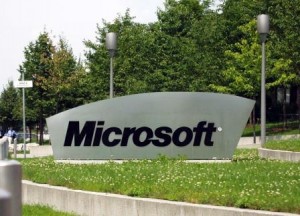 Microsoft Corp. (Nasdaq: MSFT) revealed on Jan. 4 that its new Windows 10 operating system (OS) is active on over 200 million devices. The company additionally stated Windows 10 is now its fastest-growing OS to date, beating out Windows 7 and 8.
Microsoft Corp. (Nasdaq: MSFT) revealed on Jan. 4 that its new Windows 10 operating system (OS) is active on over 200 million devices. The company additionally stated Windows 10 is now its fastest-growing OS to date, beating out Windows 7 and 8.
Considering that the OS is being offered for free to existing Windows users, the news comes as no surprise.
But a dark question has been raised by customers about MSFT's most popular OS...
Is Microsoft spying on you with Windows 10?
Controversial privacy invasion and data mining functions within Microsoft's newest operating system forced the company to release statements as far back as last September. In its official blog, MSFT explained that the embedded spyware is used to provide a more "personalized experience for its users" and to streamline crash reporting and advertisement data collection.
The explanation didn't satisfy many users.
And now brand-new statistics released by the company Jan. 4 show just how far-reaching the deep-tracking capabilities that come part and parcel to Windows 10 really are...
Microsoft Spying Revealed in New Statistics Report
Earlier today, Hacker News curated and released stats Microsoft reported via blog on Monday. The site highlighted to readers that MSFT may be collecting even more data than users initially thought...
Here are those stats:
- Windows 10's adoption is growing 140% faster than Windows 7 and over 400% faster than Windows 8.
- More than 40% of the new Windows 10 devices were activated since Black Friday.
- Over 11 billion hours were spent using Windows 10 in December, meaning roughly 365 million hours per day.
A Jan. 5 article on ghacks.net stated that "while it is unclear what data is exactly collected, it is clear that the company is collecting information about the use of individual applications and programs on Windows at the very least."
What's particularly suspicious about these user stats - in light of personal privacy concerns - is that Microsoft issued a warning against using Windows 7 on Tuesday...
It cautioned users - which came off more like a threat than anything else - to "use [it] at your own risk, at your own peril."
Also, if you don't upgrade, Microsoft will simply do it for you... automatically (though you'll have the option to stop the upgrade). Microsoft started this process in late 2014. Many users complained that they weren't able to stop the upgrade once it had started. Yet MSFT maintains Windows 10 remains "optional," at least until 2020 - the year that mainstream support for anything but Windows 10 runs out.
Of course, once everyone is on Windows 10, it will be easier for the company to perform the following functions, which the operating system is, by default, allowed to do:
- Control your bandwidth usage
- Display ads in the "start" menu
- Send your hardware details and any changes you make to it back to Microsoft
- Log your browser history and keystrokes, which the Windows End User License Agreement (EULA) states you allow Microsoft to use for analysis
While it's possible for users who have or are considering upgrading to Windows 10 to "turn off all data collection" on their devices, another major privacy concern lingers: When a user does this, Windows 10 "phones home" to alert itself that the user's tracking features were deactivated.
Microsoft admitted way back in September that, yes, it does this, but reiterated "no matter what privacy options you choose, neither Windows 10 nor any other Microsoft software scans the content of your email or other communications, or your files, in order to deliver targeted advertising to you."
Is Microsoft spying a concern for you? Tell us on Twitter @moneymorning or like us on Facebook.
[mmpazkzone name="in-story" network="9794" site="307044" id="137008" type="4"]
The Markets Will Crash Again: The cracks are already showing. But the impending collapse is also an opportunity. By understanding these five "Super Crash" inevitabilities and making key adjustments, investors can protect their portfolios from the downside while positioning for the upside. This is your last chance to act before it's too late...
Related Articles:


